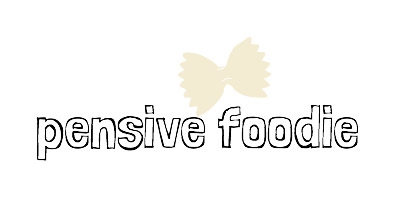“It is not the critic who counts; not the man who points out how the strong man stumbles, or where the doer of deeds could have done them better. The credit belongs to the man who is actually in the arena, whose face is marred by dust and sweat and blood; who strives valiantly; who errs, who comes short again and again, because there is no effort without error and shortcoming; but who does actually strive to do the deeds; who knows great enthusiasms, the great devotions; who spends himself in a worthy cause; who at the best knows in the end the triumph of high achievement, and who at the worst, if he fails, at least fails while daring greatly.” - Teddy Roosevelt (1910) via Brené Brown
Since joining the digital sector as a project manager, I have been doing my fair share of reading to get acquainted with the nuances of the industry, best practices, and opinions of the practitioners who so generously share their knowledge. At this moment, it escapes me how I found this writer in particular, but I am grateful I did. Paul Jarvis is proficient in web design, sure, but I am especially fond of his weekly newsletter, the Sunday Dispatches. He has a knack for relating business and design concepts to practical life lessons, and I find his weekly reads enriching from both a professional and personal vantage point. I highly recommend subscribing.
A few weeks back, Paul wrote about managing critics, or "trolls" as he called them and it struck a chord with me. As a sensitive person, I am especially, well, sensitive, to criticism. While others' comments aren't always relevant or constructive and I would be better off to disregard them entirely, they still register. I hear the words, I internalize them, search for any truth behind said words, and then hold on to them if they evoke enough negative feelings.
Unfortunately, as a fallible human being I have the ability/urge to be critical as well. As much as we hate criticism, we are all capable of doling it out, and sometimes do. Webster says to criticize is to indicate the faults of (someone or something) in a disapproving way. Criticism ranges from trivial comments about preferences in dress or music, to deeper value judgements about efforts, behaviors, choices, and beliefs. We can be critical without even realizing it, and I this may be due in part to our obsession as a culture with comparing and conforming, rather than celebrating what makes us special.
The quote at the beginning of this post was shared by Paul, and I found great comfort in these words from our former President, as conveyed by one of the leading scholars in the fields of empathy and vulnerability research, Brené Brown. I would consider myself passionate, and full of life. I thrive off associating with others who are thirsty to explore, learn more, and live with their feet firmly planted in the beauty that this world, although broken, has to offer. Especially refreshing are people who acknowledge weaknesses, accept them, even become comfortable with this state of brokenness. Those that can encourage advancement and diligence but allow for the shortcomings that will undeniably arise on the quest to competence. "...who spends himself in a worthy cause; who at the best knows in the end the triumph of high achievement, and who at the worst, if he fails, at least fails while daring greatly."
For anyone who has ever doubted themselves, been judged unfairly, or judged another person before considering the compassionate approach, you're surely not the only one. Personally, when I am critical of others or myself, it reveals an evident insecurity. I can only speak for myself, but I would go so far as to say it is beneficial to overcome the urge to criticize, when not constructive, as it serves neither the critic nor the judged. The great strength of humanity is that we have the free will to choose - actions that build up others or tear them down. It makes choosing love and understanding all the more celebratory, and as a people we can learn from each instance of said love.
(PS- Well worth your time is Brené's TED Talk, below, on the "power of vulnerability". If there were a curriculum for life, this in my humble opinion would be essential content.)

